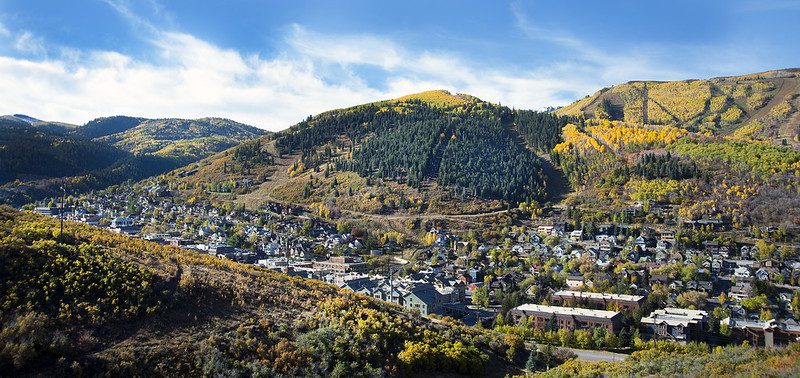Taking a long-range view of community resilience, 23 cities, towns, and counties from across the U.S. mountain west have joined a collaborative effort to inventory their greenhouse gas emissions as a fundamental step to determine how to reduce their local contribution to climate change.

As mountain towns whose economies are largely based on recreation-based tourism, participants in the cohort face unique challenges in the current health crisis. At the same time, these mountain towns are committed to setting ambitious climate goals and implementing locally resilient and sustainable solutions. Together, they are pressing forward on climate action as part of a multi-month capacity-building engagement that kicked off at the beginning of 2020.
Spearheaded by the Municipal Government of Park City, Utah, and ICLEI-Local Governments for Sustainability, the cohort is one outcome of the Mountain Towns 2030 Summit held in Park City, and provides a pathway to turn the event’s thought leadership into immediate action. The cohort participants include: Bellevue, ID; Big Sky, MT; Blaine County, ID; Bozeman, MT; Carey, ID; Gunnison, CO; Golden, CO; Grand County, UT; Hailey, ID; Ketchum, ID; Laramie, WY, McCall, ID; Moab, UT; Mountain Village, CO; Mount Crested Butte, CO; Park City, UT; Salida, CO; Salt Lake County, UT; Summit County, UT; Sun Valley, ID; and Vail, CO.
“The recent COVID-19 situation has really shed light on the importance of a strong and resilient community. Ensuring our community is able to persevere, adapt, overcome, and strengthen in the face of any adversity from the impacts of climate change to a global pandemic is vital,” said Town of Vail Mayor Dave Chapin. “As we adapt and bounce back from current challenges we will utilize the lessons learned to continue planning to strengthen mitigation, adaptation, and resiliency on all fronts. I am inspired by the community response to this global emergency, which has shown how strong, spirited, and compassionate we are.”
Data is central to a goal of net zero carbon by 2030. The participating mountain towns have made a commitment to science-based decision making on climate change as part of the program, which started by each community creating a greenhouse gas inventory. By determining the sources of emissions, residents and local officials can better understand and track their own systems that contribute to climate change and environmental impacts that result from seasonal shifts, social instability, and economic uncertainty for regions of the country dependent in part on strong tourism industries.
Moreover, as financial ratings firms are increasingly looking at whether communities have studied their climate-related risks, the Mountain Towns cohort positions these local governments to create Climate Action Plans. “In mountain towns, snow isn’t just our passion and culture, it’s the essential ingredient of our economies. To thrive and survive economically, we must vigorously address climate change now”, said Katie Wright, Executive Director of the Park City Community Foundation, founding partner of Mountain Towns 2030.
The inventory process requires towns to gather and analyze data on the amount of energy consumed by different sectors, the diversity of energy sources, vehicle fuel use within each community’s boundary, the amount of waste generated, and more. Collecting data and determining the associated greenhouse gas emissions demonstrates that climate risk preparedness is underway. Moreover, the GHG inventories are being created in compliance with the U.S. Community Protocol for Accounting and Reporting of Greenhouse Gas Emissions, the industry standard for emissions accounting, which brings comparability to the data. These insights give employees inputs for creating an Action Plan that reduces emissions, increases energy efficiency, and improves air quality.
“Mountain towns were, in many cases, frontline pandemic communities given they serve as the gateway to the outdoors for regional and international visitors. Having grown up in Summit County, Colorado, I know that they, too, are on the frontlines of the climate crisis with their local economies inextricably intertwined with the outdoors,” said Dan Stiles, Founding Partner at Stiles.Legal and ICLEI USA Board Member. “Mountain towns are uniquely positioned to lead and emerge from the current crisis stronger and more resilient than ever by using data driven decisions such as greenhouse gas emission inventories to, in the words of UN Secretary General António Guterres, ‘build back better.’” The initiative gives the communities access to technical resources, a peer network, and training through ICLEI. As experts continue to point to the links between global health, climate change, and social vulnerability, the Mountain Towns cohort demonstrates a continued commitment to sustainable solutions and community resilience.